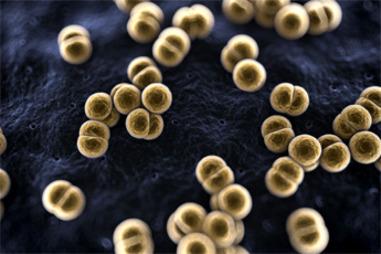Meningococcal Disease
Meningococcal meningitis is a potentially serious infection that can result in brain damage or even death. It’s fairly uncommon, but it can be highly infectious. The following information has been sourced from the Department of Health and Human Services Public Health website, and NCIRS.
Meningococcal meningitis is most often caused by a type of bacteria called Neisseria meningitidis. The infection affects the delicate tissue that encases the brain and spinal cord. This thin tissue is called the meninges. Meningococcal meningitis is a serious infection of the meninges and cerebrospinal fluid. Inflammation and swelling in these tissues can exert dangerous pressure on the brain or spinal cord. Prompt diagnosis and treatment are essential. But the symptoms of meningitis can be similar to symptoms of other illnesses. As a result, medical attention is often delayed. Meningococcal meningitis can be treated with antibiotic drugs. Even with rapid antibiotic treatment, a person with meningitis may have serious consequences that can last a lifetime. Affected people may experience a loss of hearing, loss of limbs, or loss of the ability to think clearly.
What are the symptoms?
Meningitis (inflammation of the membranes covering the brain and spinal cord)
- Fever
- Headache
- Neck pain or stiffness
- Pain from lights
- Drowsiness or confusion.
Septicaemia (blood infection)
- Fever
- Muscle aches
- Vomiting
- Rash (a red rash which does not fade when pressed and can become dark purple).
Other symptoms:
- Joint pain and swelling
- Lung infection with fever, cough, chest pain and difficulty breathing
- Severe throat infection with pain, difficulty swallowing, and drooling.
Children and adolescents can have leg pain, cold hands and feet, and blotchy skin.
Babies and infants often don’t have these symptoms but can be unsettled or drowsy, floppy and not feeding.
It can take from one to seven days from being exposed to the bacteria to becoming sick. Symptoms can become life threatening within hours.
How is it spread?
Meningococcal bacteria are spread in secretions of the throat and nose. This is more likely to happen among people with close, regular and prolonged contact.
About 1 in 10 people can have meningococcal bacteria in their throat or nose without any signs or symptoms of disease. These people are called carriers. Carriers can infect other people through activities like:
- open-mouthed kissing
- sharing food or utensils
- coughing
- sneezing
Susceptible people can develop an infection after exposure to the bacteria that cause meningitis.
Regular exposure to tobacco smoke can increase the risk of catching the bacteria and becoming ill.
The bacteria don’t survive outside the body and don’t spread easily from shared drinks, food or cigarettes.
How is it diagnosed?
Meningococcal disease is diagnosed in blood samples, or fluid samples from around the spinal cord.
How is it treated?
People with meningococcal disease need urgent treatment in hospital. Treatment usually starts before test results are known. Treatments include:
- Antibiotics
- Medications for fever and pain
- Fluids.
A person is no longer contagious after 24 hours of antibiotics.
How is it prevented?
Immunisation is the best way to prevent meningococcal disease.
An unvaccinated person who has been exposed to meningitis should seek medical attention immediately. Doctors will often prescribe a course of prophylactic antibiotics. This kind of antibiotic use can prevent the disease from taking hold in a recently exposed person. Even if doctors can’t confirm exposure, they will usually prescribe antibiotics to be safe.
Practicing good hygiene can also help you avoid exposure. Meningococcal meningitis is usually spread through contact with the saliva or nasal secretions of an infected person. Try to avoid sharing drinks, eating utensils, or other items that may contain saliva. Also, don’t engage in open-mouthed kissing with an infected person.
Vaccinations for some strains of meningitis are available. We have recently updated our Meningococcal Vaccination information with the current recommendations from the National Centre For Immunisation Research & Surveillance (NCIRS). Please click on the following link to go to our Meningococcal Immunisation information page:
Meningococcal Immunisation


